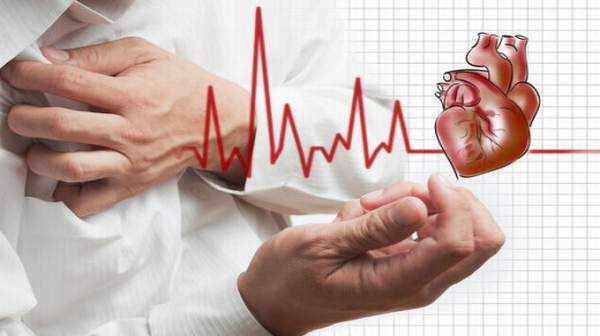What's in this article?
What is Myocarditis?
Myocarditis is inflammation of the heart muscle(myocardium). The inflammation of the heart muscle causes degeneration or death of heart muscle cells. Myocarditis has many different causes and can result in a range of outcomes from mild (presenting briefly and resolving) to rapidly progressing fatal disease. Myocarditis is differentiated from pericarditis because pericarditis is inflammation of the sac that surrounds the heart and does not involve heart muscle like myocarditis. However, it is not unusual to have a patient present with both pericarditis and myocarditis.
Causes of Myocarditis
Myocarditis is an uncommon disorder. Most of the time, it is caused by a viral, bacterial, or fungal infection that reaches the heart.
Viral infections:
- Coxsackie
- Cytomegalovirus
- Hepatitis C
- Herpes
- HIV
- Parvovirus
Bacterial infections:
- Chlamydia
- Mycoplasma
- Streptococcus
- Treponema
Fungal infections:
- Aspergillus
- Candida
- Coccidioides
- Cryptococcus
- Histoplasma
When you have an infection, your immune system produces special cells to fight off disease. If the infection affects your heart, the disease-fighting cells enter the heart. However, the chemicals produced by an immune response can damage the heart muscle. As a result, the heart can become thick, swollen, and weak.
Symptoms of Myocarditis
The most common symptom of myocarditis is shortness of breath during exercise or exertion. This symptom usually develops 7 to 14 days after a viral illness and can progress to shortness of breath at night, which may require that you sit up to breathe.
Other symptoms may include fatigue, heart palpitations and chest pain or pressure. The legs also may swell. Rarely, myocarditis causes a sudden loss of consciousness that may be due to abnormal heart rhythms. In summary, patients may experience some, all or none of the following symptoms: shortness of breath, chest pain, lightheadedness, irregular heartbeat, sudden loss of consciousness.
Complications of Myocarditis
When myocarditis is severe, it can permanently damage your heart muscle. This damage might cause:
- Heart failure. Left untreated, myocarditis can damage your heart’s muscle to the point it can no longer pump blood effectively, causing heart failure. In severe cases, myocarditis-related heart failure may require a ventricular assist device or a heart transplant.
- Heart attack or stroke. If your heart’s muscle is injured and can’t pump blood, the blood that pools in your heart can form clots. If a clot blocks one of your heart’s arteries, you can have a heart attack. If a blood clot in your heart travels to an artery leading to your brain before becoming lodged, you can have a stroke.
- Irregular heart rhythms (arrhythmias). Damage to your heart muscle can cause irregular heart rhythms (arrhythmias).
- Sudden death. If your heart muscle is damaged, you may develop serious arrhythmias. It’s possible certain serious arrhythmias could cause your heart to suddenly stop beating (sudden cardiac arrest). If not treated immediately, it causes sudden cardiac death.
Treatment for Myocarditis
If you have myocarditis, your doctor will treat its underlying cause. He or she will also try to take the extra load off your heart and take steps to prevent or control complications.
Treatment typically includes medications to help the heart function better. Examples include ACE inhibitors, calcium channel blockers, and diuretics.
Your doctor will also likely suggest rest or reduced activity for at least six months and a low-salt diet to prevent fluid buildup.
You may be hospitalized if you have complications of myocarditis, such as a blood clot or weakened heart. If abnormal heart rhythms are severe, you may need other medications, a pacemaker, or an implantable cardioverter-defibrillator (ICD).
Your outlook depends on the cause of your myocarditis, your overall health, and whether you develop complications. You may recover completely. Or you may develop a chronic, lasting condition. Regardless, follow-up care can monitor you for any ongoing heart problems. It’s also important to know that myocarditis can recur, although this is not common.





